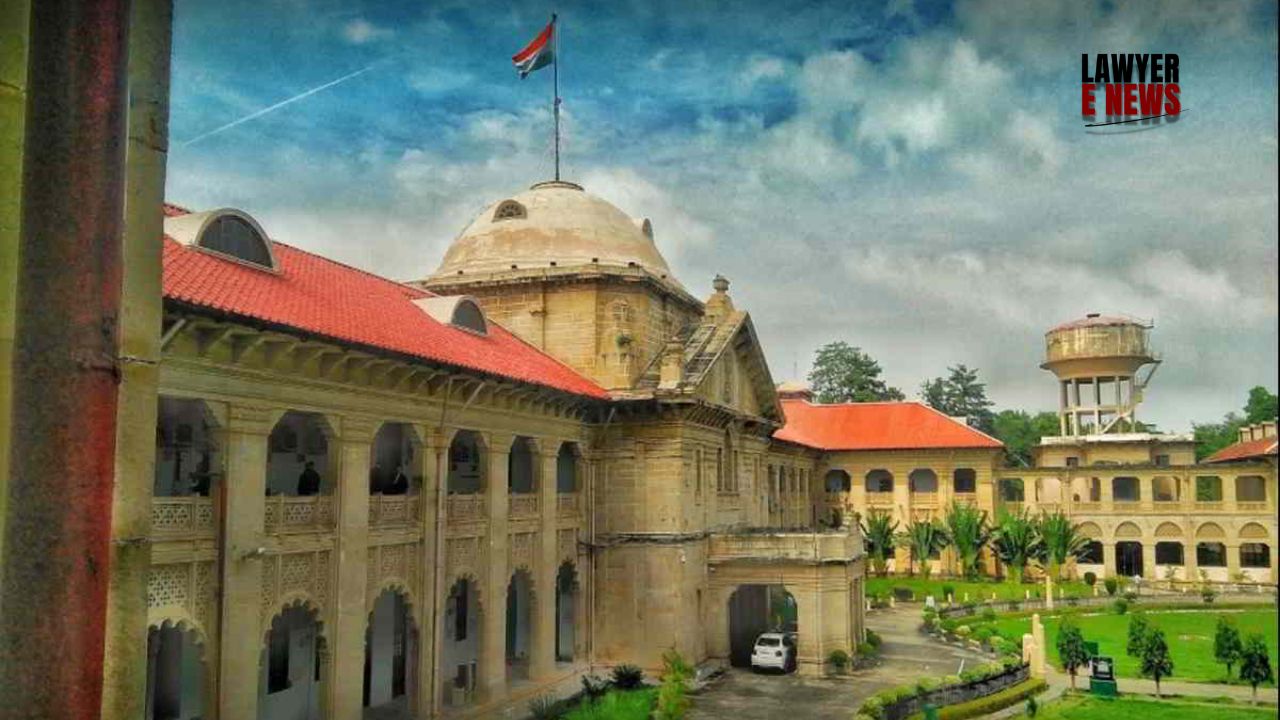-
by sayum
17 February 2026 8:32 AM



A Wife Is Not an Extension of Her Husband But an Individual With Her Own Rights, Desires, and Agency” - Allahabad High Court delivered a significant ruling in the case of PY v. State of U.P. and Another, addressing a crucial issue surrounding digital privacy, consent, and the sanctity of marital relationships. Dismissing a petition under Section 482 Cr.P.C., the Court refused to quash the criminal proceedings initiated against a husband who was accused of clandestinely recording and sharing an obscene video of his wife. Holding that marriage does not legalize the breach of bodily autonomy and privacy, the Court ruled that the husband’s actions, if proven, amounted to a grave violation of trust and dignity, falling squarely within the purview of Section 67 of the Information Technology Act.
he applicant, the legally wedded husband of the complainant, sought quashing of the charge sheet dated 26.09.2022 and cognizance order dated 30.09.2022 in Case No. 953 of 2022, arising out of Crime No. 62 of 2022 under Section 67 of the Information Technology (Amendment) Act, registered at Police Station Padari, District Mirzapur.
The allegation against him was that he had secretly recorded an intimate act with his wife on his mobile phone and uploaded the video on Facebook, subsequently sharing it with her cousin and other villagers. He contended before the Court that no offence under Section 67 was made out, citing lack of evidence and prospects of reconciliation between husband and wife.
The key question before the Court was whether a husband, by virtue of marriage, could be shielded from prosecution under Section 67 of the IT Act for uploading and circulating an obscene video involving his wife, allegedly without her knowledge or consent.
The Court emphatically rejected the notion that marriage grants immunity from such legal consequences. It observed:
> “Marriage does not grant a husband ownership or control over his wife, nor does it dilute her autonomy or right to privacy.” Justice Vinod Diwakar noted that:
> “By uploading an intimate video on Facebook, the applicant has gravely breached the sanctity of the marital relationship.”
The judgment further highlighted the violation of trust that is intrinsic to such an act, stating:
> “A husband is expected to honour the trust, faith, and confidence reposed in him by his wife, particularly in the context of their intimate relationship.”
The Court eloquently asserted that:
> “A wife is not an extension of her husband but an individual with her own rights, desires, and agency.”
Adding that:
> “Respecting her bodily autonomy and privacy is not just a legal obligation but a moral imperative in fostering a truly equal relationship.
Reasoning Behind Dismissal
The Court found no ground to interfere in the ongoing proceedings, holding that the petitioner’s contentions involved questions of fact which were best left to the trial court to examine. The petition under Section 482 Cr.P.C., it said, could not be used to appreciate evidence or evaluate the credibility of the prosecution case at this stage.
Refusing to accept the submission that the proceedings were motivated or malicious, the Court declared:
> “No such illegality, perversity or any other substantial error could be pointed out in the impugned summoning order so as to warrant any interference by this Court in the exercise of powers under Section 482 Cr.P.C.”
This judgment is a stern reaffirmation that the rights to privacy, consent, and dignity survive within marriage, and are enforceable even against one’s spouse. The Allahabad High Court has clearly underlined that digital consent is not implied by marital status, and that a spouse’s autonomy cannot be overridden by tradition, intimacy, or trust. The application was dismissed, paving the way for the criminal trial to proceed on merits.
Date of Decision: 28 February 2025
